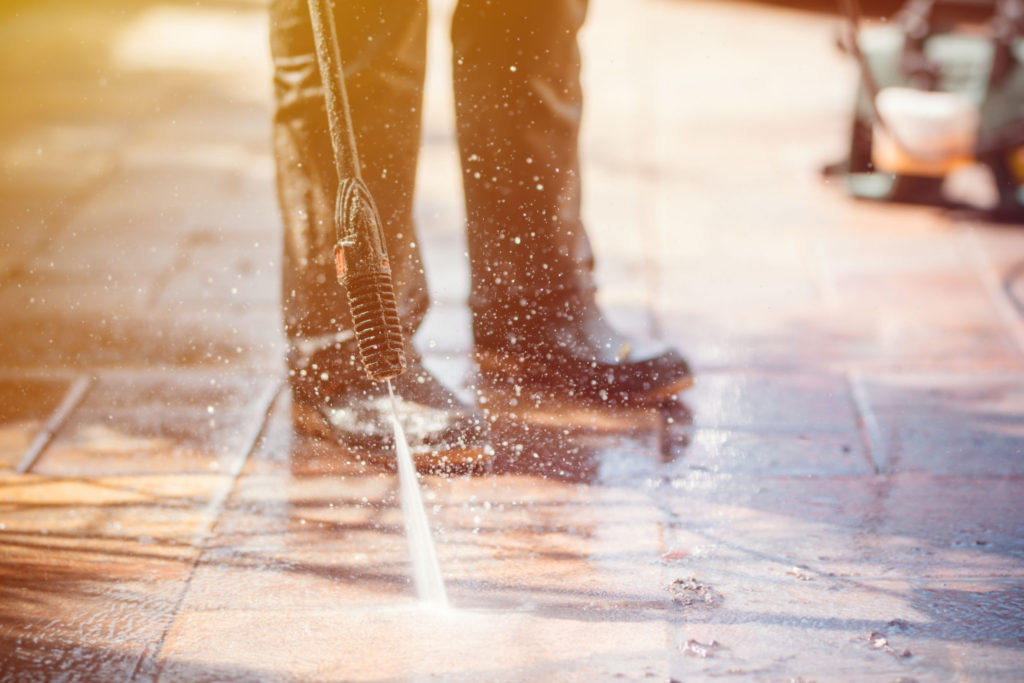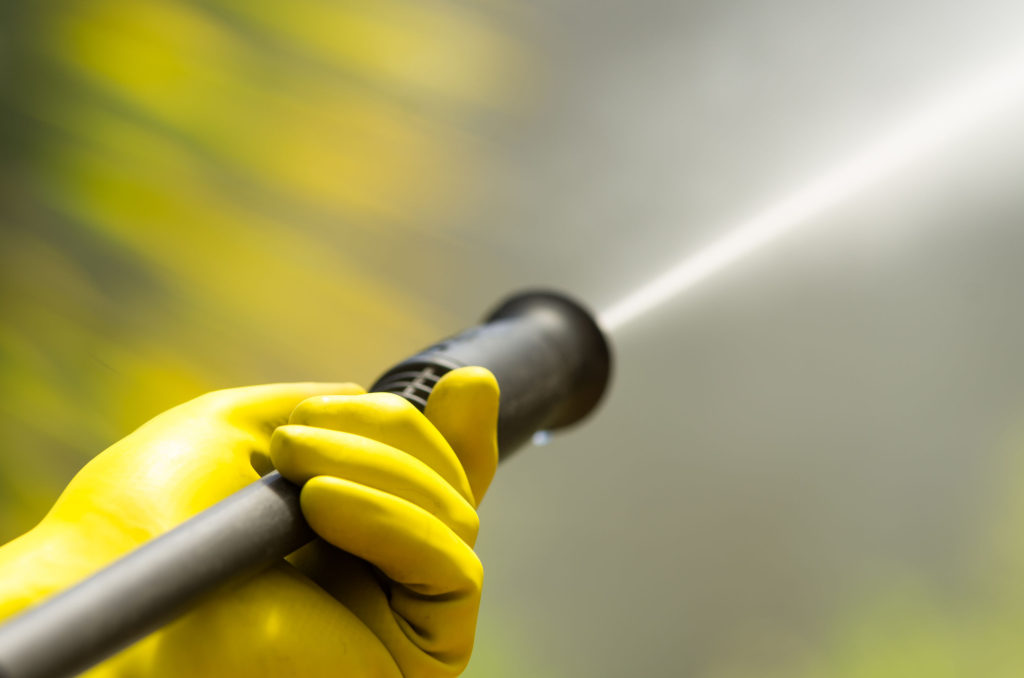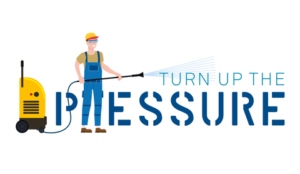
You may be wondering if an electric pressure washer is safe to use outside in the rain, or what might happen when it’s exposed to excess amounts of water.
It’s not safe for an electric pressure washer to get wet. Electric pressure washers are able to handle getting splashed by a little bit of water. After all, it’s impossible to avoid a little bit of water because of the splashing back from the spray gun.
There are many things that you should know when it comes to getting your pressure washer wet. Things like, what happens when it’s exposed to water, how to potentially fix it, and whether or not its a good idea to use it in the rain. Lets dive right in!
Pressure Washer Got Wet?
Let’s say you left your pressure washer out in the rain overnight, or your pressure washer fell into your backyard pool. Those are both very unfortunate situations for your pressure washer because both of those situations will most likely cause damage, especially if it is an electric pressure washer. We are going to explain what happens inside your pressure washer when it’s exposed to too much water.
Electric Pressure Washer
In the case of an electric pressure washer, it’s not safe to use in the rain because it could cause electrocution. When the electrical components inside of your pressure washer mix with water, it’s a recipe for disaster.
If you left your pressure washer in the rain or it happened to get submerged into water, there are many things that may prevent it from working again. The air filter is most likely water logged and the crankcase has water in it, which makes it difficult to start. The electrical components are all wet, as well as the cylinders.
If you dropped your pressure washer into a pool, it has begun to rust inside and out because of the chlorine.
Gas-Powered Pressure Washer
Gas powered pressure washers are able to handle water better than electric pressure washers, but that does not mean that they are water proof.
When a gasoline engine takes in the water through the carburetor it is very likely that the engine will be ruined. Gas engines have pistons that compress a gas and air mixture. That mixture is then ignited, which powers the piston down and causes the crankshaft to turn.
If enough water gets into the gas engine, water will not compress and the pistons will be completely damaged. The pistons become damaged by bending or breaking the rod that connects them to the air-shaft.
How to Fix Your Pressure Washer
There are many things that you can do to try and salvage your pressure washer if it was left in the rain. If your pressure washer fell into a pool, or was submerged into water, the chances are very low that your pressure washer will work again.
Electric Pressure Washer
If an electric pressure washer is exposed to too much water, you may not be able to get it working again, but there are some things you can do to help salvage it.
The most important step is emptying the water that got into the pressure washer as soon as possible. Then you need to make sure to inspect all of the inner components of your pressure washer. You should also clean of the inner parts.

Next, it’s a good idea to replace the gaskets and take out the spark plug. after finishing all of these steps, leave your pressure washer outside in the sun for a couple days and let it completely dry.
It you don’t know much about the inner components of your pressure washer, or know how to take it apart effectively, then it would be a good idea to take it to a commercial equipment dealer, or consider buying a new pressure washer.
Gas-Powered Pressure Washer
A gas powered pressure washer may be able to handle a little more water than an electric pressure washer. If you have a gas-powered pressure washer, you may be in luck, but it’s still not the best to leave your pressure washer in the rain.
First thing you’ll want to do is remove the spark plug and then pull the starter cord several times to get rid of most of the water in the cylinder. Then you’ll want to put your finger over the spark plug hole and the pull the starter cord. The piston and valves are working normally if you feel pressure on your finger.
If the piston an valves are working normally for you, then you can go ahead and remove the gas tank and completely drain it. If your pressure washer has a bowl type of carburetor, then it should also be drained. Next, you should consider draining the oil.
Lastly, make sure to leave the spark plug out for a day to let it dry. Next all you have to do is refill the oil and gas tank with fresh gasoline and change the air filter. Replace the spark plug, and you’re hopefully ready to use your pressure washer again!
Pressure Washing in the Rain?

Pressure washing in the rain isn’t recommended because it exposes your pressure washer to unnecessary amounts of water and it’s lifespan will be shortened.
Pressure washing in the rain isn’t considered safe, because if water happens to get in inside your unit it could cause it to malfunction. If you have an electric pressure washer, unnecessary water exposure could lead to electrocution.
If you still decide to use your pressure washer in the rain, here are some things you can do and consider to help ensure your safety:
- Make sure to always read the owners manual and all of the safety warnings before using your pressure washer in the rain.
- Understand the difference between waterproof ratings for splashes vs. submersion in water.
- Before you use your pressure washer, check the weather and make sure rain isn’t in the forecast.
- Understand that i you expose your pressure washer to unnecessary amounts of water, you will shorten its lifespan
- Make sure to always store your pressure washer in a covered, dry area.
